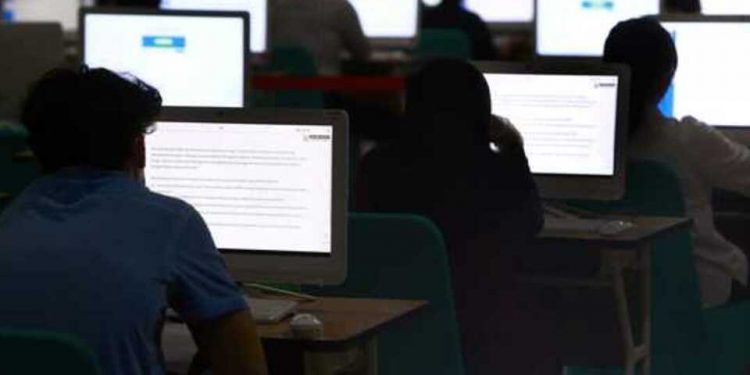IDNAround – The emergence of the artificial intelligence-powered platform, Chat GPT, is causing a stir among educators and universities, with concerns its existence is compromising academic integrity.
Open AI, an artificial intelligence research organization released Chat GPT in November 2022, a tool that can generate human-like responses within seconds.
There has been excitement surrounding the launch, but also concerns when it comes to the accuracy, and fears it is already allowing students to plagiarize in assessment.
Turnitin, an anti-plagiarism detection service, has been developing a tool that will be able to decipher the difference between AI-generated writing, and original work.
According to Turnitin’s regional vice president for Asia Pacific James Thorley, AI detection technology will be released in the coming months and will function by identifying work that deviates from the average standard.
Thorley said it’s quite “predictable technology” and there are certain qualities to the writing that will be noticeable.
“Chat GPT works where it’s writing very much to the mean, whereas an actual human with a fraction of the knowledge Chat GPT has will deviate frequently from that mean,” he said.
Confident in the design of the detection technology during its production phase, Thorley said it’s going to be important to see what happens over the next few months once it’s released to the public.
“We’ll have to see how it performs in the real world and we’ll have to make adjustments,”
Having foreseen the emergence of AI-generated technology like Chat GPT, Thorley said that Turnitin has been developing its plan for an AI detection device for a while now.
“We’ve been working on this for two years… it’s not really a surprise to us.”
Mary Cummins is a university student studying in Western Australia.
Understanding of Chat GPT and its benefits Cummins said that she has made use of the tool before, but stated that she wouldn’t want to use it to complete university assignments.
“Most of the time I like my assignments, and I want to be able to share my own opinion,” she said.
“I like to think I have academic integrity.”
In suggesting what could be done to ensure that students aren’t able to turn to AI to complete assignments, Cummins said that those in charge of making the assessments need to be strategic in how they frame the questions.
“People that are creating the assignments need to make them more engaging and relatable to the human experience,” she said.
Ella Prihanti, a lecturer at a private university in Jakarta has seen firsthand the importance of the learning journey of students completing tertiary studies.
In discussing the recent rise in Chat GPT accessibility, Prihanti said it was important for students to remember why they are studying in the first place, and not to let technology completely take over their learning experience.
“It’s about coming back to the core aim of education itself,” she said.
“The technology is there for you, but never let the machine take over your learning journey…we need to reiterate to students that it is the journey that matters, not just the outcome of your paper to be marked.”
Turnitin’s James Thorley also recognized that while it’s going to be an important tool, it can’t be understated the importance of writing as a skill.
“There’s still huge value in writing as a process and writing as a way of taking an idea and being able to express it. I don’t think you can outsource that fully,” he said.
Related News: Indonesians Spend 55 Pct of Digital Time on Open Internet









